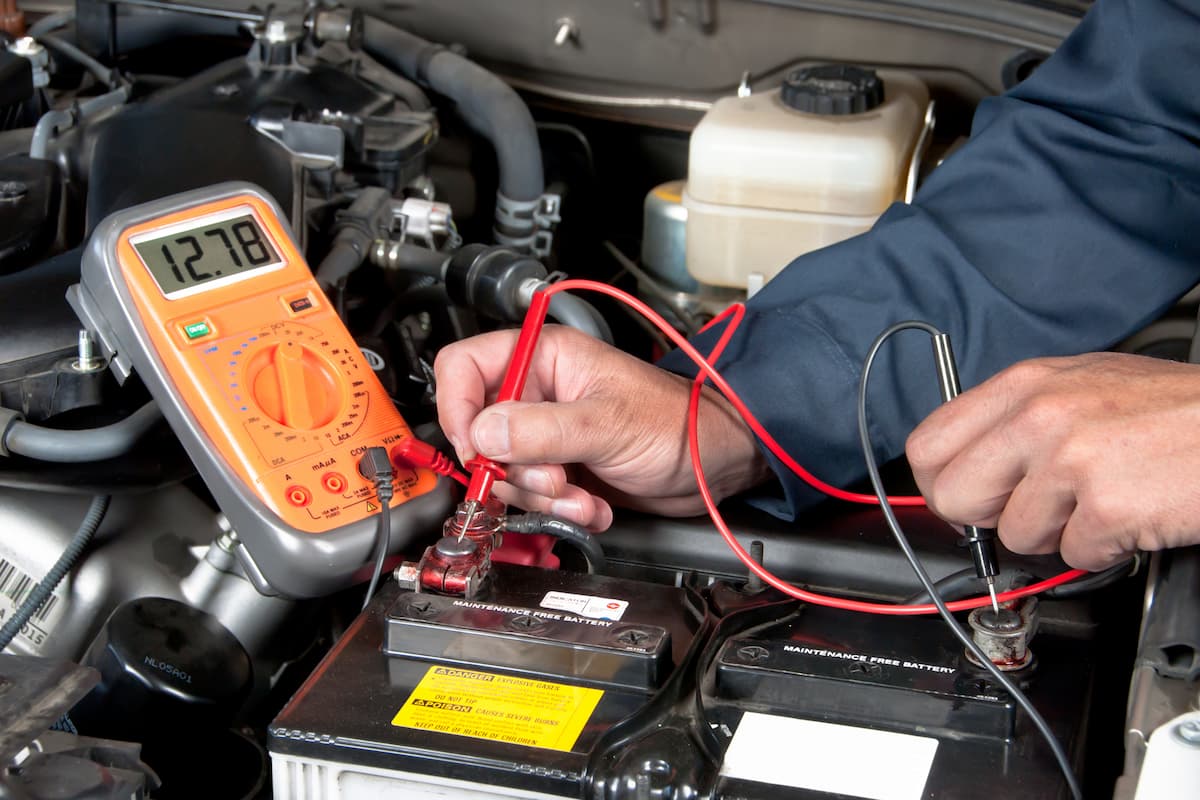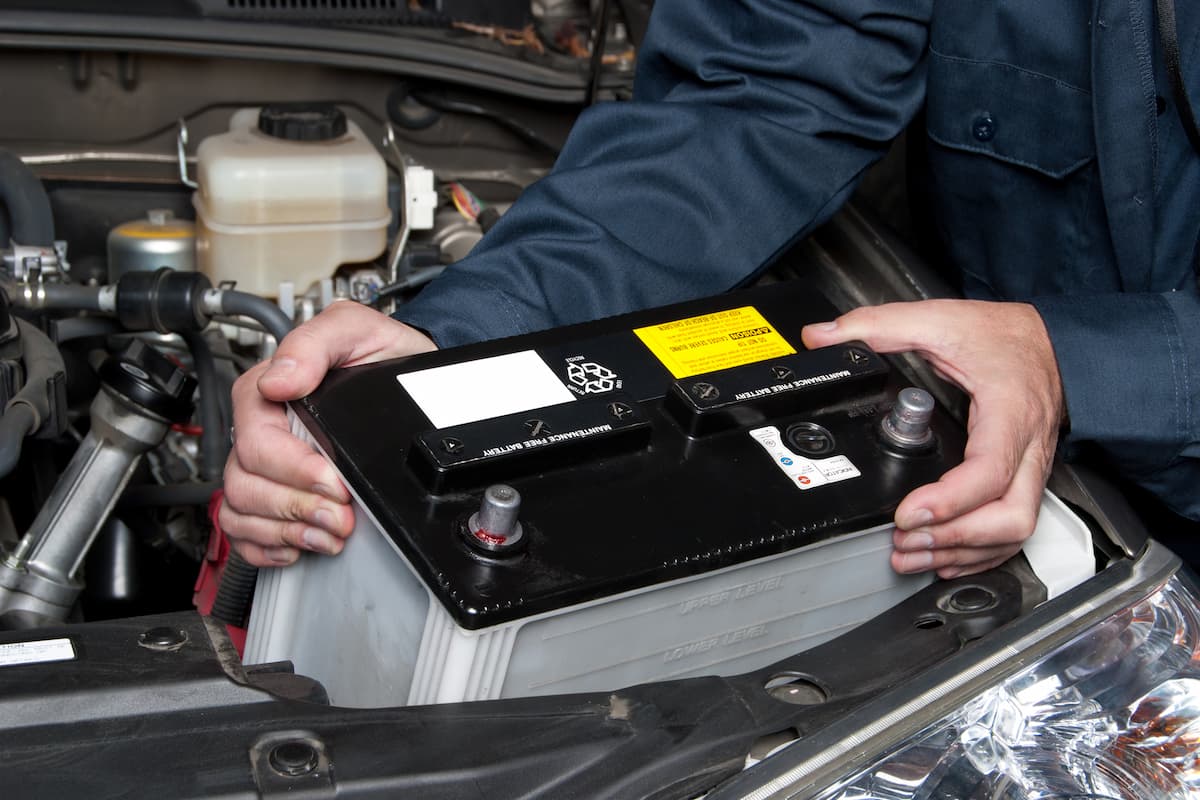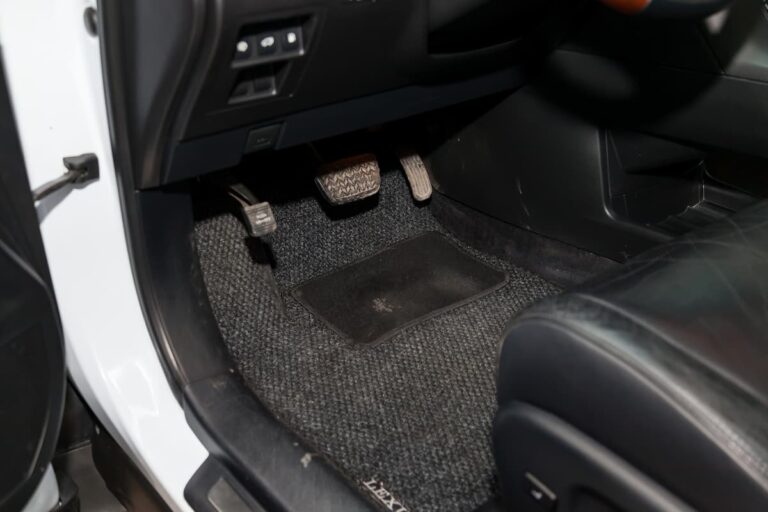What Should Car Battery Voltage Be While Running?
Your battery supplies your car with power.
Thus, a low battery voltage could affect your car’s performance.
But, you’re probably wondering, what exactly is an adequate battery voltage?
While a car is running, the battery voltage should be between 13.5 and 14.5 volts. Yet, a low voltage does not necessarily mean a battery is dying since some batteries simply run low.Instead, to tell if it’s dying, you should check your battery periodically to see if the voltage is decreasing.
In this article, I will discuss what voltage your battery should be at when your car’s running and how to test your battery’s voltage.
I will also explain how you can tell if your battery is dying, the cost of a new battery, and how often your battery will need replacing.
What Should the Car Battery Voltage Be When Running?

A standard 12-volt battery should have a voltage between 13.5 and 14.5 volts when the car is running.
However, you should keep in mind that a battery that reads low isn’t necessarily dying.
The best way to find out if your battery is dying is to read the voltage on your battery several times over an extended period.
If the voltage goes down each time you test it, your battery is probably dying.
How to Test Car Battery Voltage
The easiest way to test your car battery’s voltage is with a multimeter.
You can buy a multimeter at most auto part shops and hardware stores for around $10 to $20.
To use a multimeter, you first need to set it to 20 DC volts.
If your multimeter doesn’t allow you to set the numbers, simply put it on DC volts.
Then, you’ll need to take some safety precautions before opening the hood.
For instance, you should put your car in park and engage the parking brake.
Also, you should secure loose clothing items, dangling jewelry, and long hair to keep them from getting caught in any of the moving belts or fans under your hood.
Next, turn your vehicle on and open the hood.
Now, you need to find your battery.
The battery is a rather large black box near your engine with one red and one black cable attached.
Once you’ve found the battery, locate the positive and negative terminals.
Typically, the positive terminal will have a “+” sign and a red cable running from it.
The negative terminal will have a “-” sign and a black cable.
After identifying the terminals, press the red probe on the multimeter to the positive terminal and the black probe to the negative terminal.
The multimeter should now give you a reading in DC volts.
8 Signs That a Car Battery Is Dying

Since voltage alone can’t always tell you if a car battery is dying, you should instead watch for the following signs that your battery is reaching the end of its life.
Sign One: Corrosion
When a battery starts to leak acid, you will begin to notice corrosion around the battery terminals.
This corrosion is usually a blue-green color and looks kind of like crystals.
If you see this on your battery, know that you will soon need to get it replaced.
Sign Two: Your Battery Smells Bad
If you think your battery may be dying, open your hood and see if you notice a smell similar to rotten eggs or standing water.
If you do, your battery is probably close to dying.
You see, when batteries start to die, they leak battery acid.
And battery acid produces hydrogen sulfide gas, which gives off a distinct sulfur smell.
Although this smell is gross, it does let you know it’s time for a new battery.
Sign Three: Your Car’s Electrical System Isn’t Working Right
Your car’s battery is what keeps the electrical devices in your vehicle working properly.
So, if your battery is on its way out, you may notice that the electrical equipment in your car stops functioning or only does so occasionally.
Some examples of vehicle electrical equipment that may stop working when the battery starts to die include:
- Radio
- Heated seats
- Windows and sunroof
- Dashboard lights
- Windshield wipers
If you start to notice problems with multiple electrical features in your car, your battery may be giving out.
Sign Four: Your Headlights Are Dim or Flicker
Your car’s headlights are also part of your vehicle’s electrical system and depend on the battery.
Thus, if they don’t seem to be getting as bright as they used to or if they flicker, your battery may not be providing them with enough power.
Sign Five: You Engine Cranks Slowly
Your battery not only powers your radio but is also absolutely necessary in starting your car.
So, one of the signs that a battery is going kaput is an engine that doesn’t start properly.
And a slow crank is often indicative of a starting issue.
Sign Six: Your Car Backfires
Although backfiring can be a sign of many auto issues, it can also indicate a failing battery.
Basically, when a car battery isn’t working at its best, your car won’t spark every time it should, causing fuel to build up in the cylinder.
Then when the battery finally does create a spark, all that fuel is ignited at one time, which can cause backfiring.
Sign Seven: Your Battery Light Turns On
If your car detects that your battery is not working correctly, the battery light on your dashboard will illuminate.
You can identify this light because it is almost always in the shape of a battery with a plus and minus sign inside it.
When this light comes on, you’ll probably need a battery replacement soon.
Sign Eight: Your Battery Case Is Swollen
In a normal battery, all the sides will be straight and rigid.
But a battery that is about to give up will look swollen or warped, signaling it’s time for a replacement.
What Should the Battery Voltage Be When the Car Is Off?
When your car is off, your battery voltage should be somewhere between 12.2 volts and 12.9 volts.
How Much Does a New Car Battery Cost?

Depending on the battery’s quality, you can expect to pay between $50 and $200.
And if you pay a mechanic to replace the battery for you, you will likely pay an extra $10 to $100 in labor costs.
How Often Do I Need to Replace My Car’s Battery?
In general, you will need to replace your car’s battery every three to four years.
This time frame is when most car batteries begin to fail.
However, you may need your battery replaced more often if:
- You don’t drive your car often
- You leave the key in the ignition when you’re not driving
- You leave lights on in your car
- You live in a hot climate
- You use your car’s electrical components a lot
Conclusion
When your engine is running, your car battery should read between 13.5 and 14.5 volts.
Yet, a low battery voltage does not necessarily mean your battery is about to die since some batteries simply run low.
Table of Contents
- What Should the Car Battery Voltage Be When Running?
- How to Test Car Battery Voltage
- 8 Signs That a Car Battery Is Dying
- Sign One: Corrosion
- Sign Two: Your Battery Smells Bad
- Sign Three: Your Car’s Electrical System Isn’t Working Right
- Sign Four: Your Headlights Are Dim or Flicker
- Sign Five: You Engine Cranks Slowly
- Sign Six: Your Car Backfires
- Sign Seven: Your Battery Light Turns On
- Sign Eight: Your Battery Case Is Swollen
- What Should the Battery Voltage Be When the Car Is Off?
- How Much Does a New Car Battery Cost?
- How Often Do I Need to Replace My Car’s Battery?
- Conclusion






